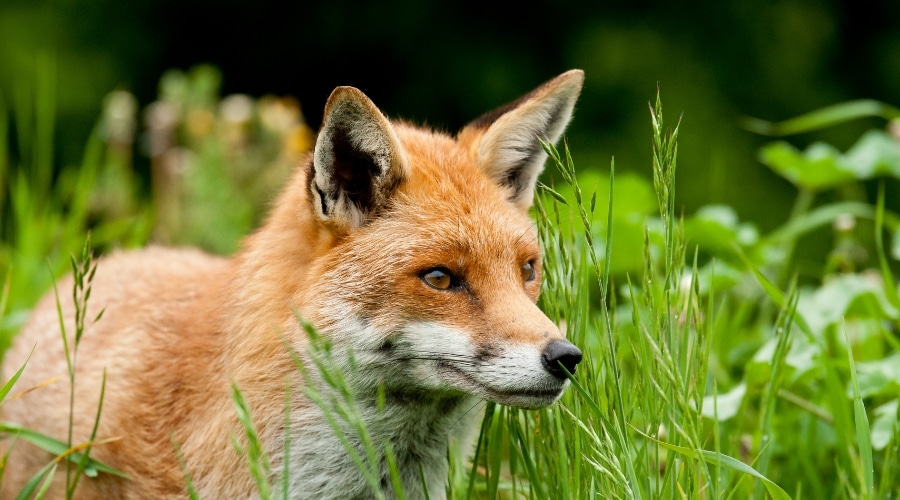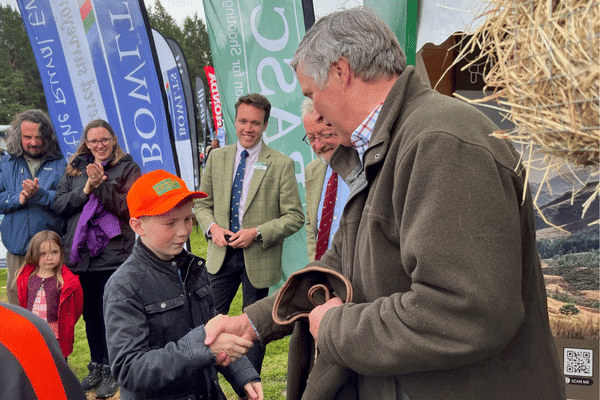
MSPs celebrate the very best of Scottish game
Members of the Scottish Parliament were treated to the ‘best of Scottish game’ in celebration of Great British Game Week.
Get information on the legal shooting season for mammals and birds in the UK.
Learn about our current conservation projects and how you can get involved.
Comprehensive information and advice from our specialist firearms team.
Everything you need to know about shotgun, rifle and airgun ammunition.
Find our up-to-date information, advice and links to government resources.
Everything you need to know on firearms law and licensing.
All the latest news and advice on general licences and how they affect you.

Last night, Tuesday 24 January, in the Scottish Parliament, the Hunting with Dogs (Scotland) Bill was passed by 90 votes to 30. It repeals and replaces the Protection of Wild Mammals Act, which was passed in 2002.
In essence, the Bill restricts those “hunting” mammals in Scotland to use no more than two dogs to do so.
It establishes a new licensing scheme to allow the use of more than two dogs in certain limited circumstances. This is to provide farmers, gamekeepers and land managers access to appropriate and humane control measures, where necessary. This would include using dogs to flush foxes from woodland or scrub to be shot.
Under the new Bill, rabbits are included under the definition of a wild mammal, which has implications for those using more than two dogs on a rough shoot.
The new two-dog limit for all uses of dogs in the course of hunting will be introduced, which has consequences for rabbit and mixed quarry rough shooting.
BASC opposed the Bill from the outset. We also extensively lobbied MSPs, Government Ministers and Scottish Government officials in order to ensure clarity around unintended consequences for rough shooting.
At Stage 3, it was confirmed that field trials do not fall under the scope of the Bill, provided that no more than two dogs are actively working at any one time to flush rabbits.
The Bill means changes for those partaking in rough shooting, but only if each individual uses more than two dogs to flush wild mammals. Gamebird shoots are not affected by this legislation.
Yes, because dogs are being used to flush gamebirds and not to hunt wild mammals.
Section 6 of the Bill provides an exception for “falconry, game shooting and deer stalking”. In this section the two-dog limit does not apply to the activity of shooting gamebirds.
Therefore, the restriction on using no more than two dogs does not apply on a pheasant, partridge or grouse shoot as long as there is no intention to hunt wild mammals i.e. “no ground game”.
Yes however, the Bill makes it clear that you cannot use more than two dogs per activity, which would include flushing wild mammals like rabbits, from cover.
This means that a shooter and their two dogs, who is part of a rough shoot party, could flush their own individual quarry to be shot, provided that other shooters take reasonable steps to ensure that any dog used in the activity does not join with others to form a pack of more than two dogs.
To avoid dogs forming a pack with other shooters’ dogs, for example, individual shooters should ensure their dogs are not joining up with other dogs down the walking line.
It means that more than two dogs can be present at a rough shoot, provided that not more than two dogs are working per gun.
Example: A gun brings four dogs to a rough shoot. Provided all dogs were under control, two dogs could be working and flushing his/her quarry whilst the other two dogs are at heel by the his/her side.
Yes, you can beat with more than two dogs on a gamebird shoot. There is no limit.
There are also exceptions within the Bill which mean that two or more dogs can be used for picking up and retrieving dead game birds or wild mammals.
On a mixed rough shoot day with both wild mammals and birds as intended quarry, beaters or guns may take more than two dogs, but only two can be working on flushing, per beater or gun.
Reasonable steps must be taken to ensure that on the beating line, a beater or gun is working only his/her dogs for flushing wild mammals and the dogs are not joining with fellow beaters’ or guns’ dogs to flush the same quarry.
If someone suspects that a wild mammal is wounded, then only two dogs can be used to search for it, with the wounded wild mammal being despatched by shotgun upon discovery.
Although trail hunting has been banned, Section 12 allows for the training of dogs to follow an animal-based scent for the purpose of training deer dogs.
BASC has been requested by the Scottish Government to shape guidance on licensing and the Bill’s implications on rough shooting.

Members of the Scottish Parliament were treated to the ‘best of Scottish game’ in celebration of Great British Game Week.

BASC highlights help and support available to ‘keepers and shoot managers.

The Junior Macnab Challenge, held at the Moy Country Fair, proved more popular than ever.
Sign up to our weekly newsletter and get all the latest updates straight to your inbox.
© 2023 British Association for Shooting and Conservation. Registered Office: Marford Mill, Rossett, Wrexham, LL12 0HL – Registered Society No: 28488R. BASC is a trading name of the British Association for Shooting and Conservation Limited which is authorised and regulated by the Financial Conduct Authority (FCA) under firm reference number 311937.
If you have any questions or complaints about your BASC membership insurance cover, please email us. More information about resolving complaints can be found on the FCA website or on the EU ODR platform.
This website uses cookies so that we can provide you with the best user experience possible. Cookie information is stored in your browser and performs functions such as recognising you when you return to our website and helping our team to understand which sections of the website you find most interesting and useful.
Strictly Necessary Cookie should be enabled at all times so that we can save your preferences for cookie settings.
If you disable this cookie, we will not be able to save your preferences. This means that every time you visit this website you will need to enable or disable cookies again.
This website uses Google Analytics to collect anonymous information such as the number of visitors to the site, and the most popular pages.
Keeping this cookie enabled helps us to improve our website.
Please enable Strictly Necessary Cookies first so that we can save your preferences!
More information about our Cookie Policy